12_2008
Increasingly, government has encouraged the private sector in the supply of essentials. This can be seen in the privatisation of national industries and the introduction of competition, mixed models of provision in public services and the withdrawal of public subsidies from public services. But competition is not serving the needs of the most disadvantaged. Public service rationing increasingly bars those with greatest need. Disadvantaged consumers are excluded either because they lack the skills to negotiate complex markets and systems, they are too costly to serve or they lack purchasing power. Market-based exclusion is therefore the problem to be tackled if the government is to be successful in eliminating poverty and social exclusion.
When the National Telephone company became BT and was privatised, guarantees regarding the protection of Public Call Boxes (PCBs), and provision of services to ‘everyone’ were made in the Universal Service Obligation.
The PCB as a public space is being mis-used due to the decline of demand (The mobile-hands-free-anywhere era). The costs of maintenance and repair are no longer proportionate to use.
Can people be encouraged to go into the PCB by a unusual/interesting noise/view and then be encouraged to use the phone? A ‘Seductive object’ may reaffirm to the user that it is still operational.
Sounds have been selected to surprise, and encourage the user to pick up each handset. They are keyed to moments shown on the diagram.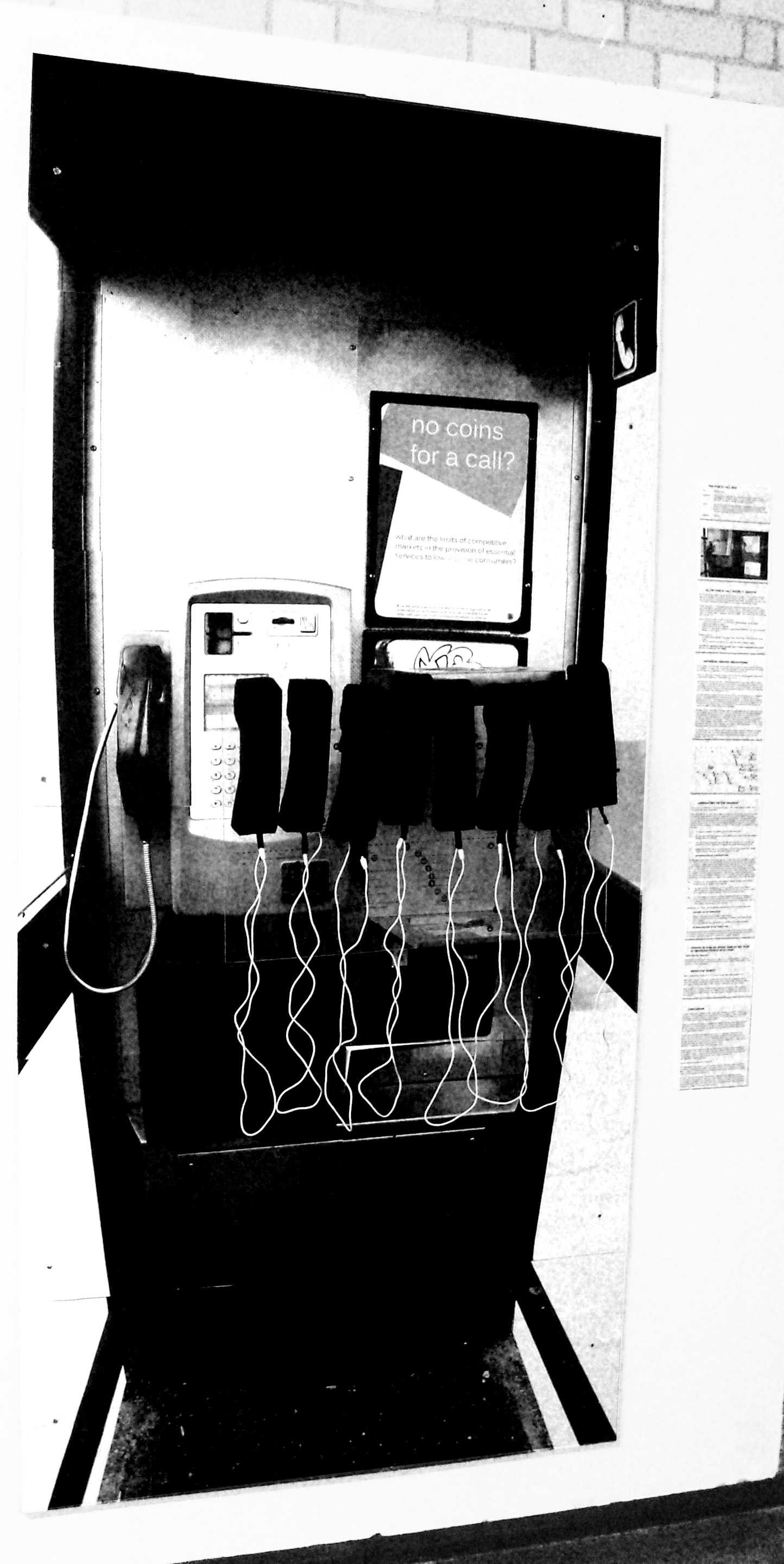
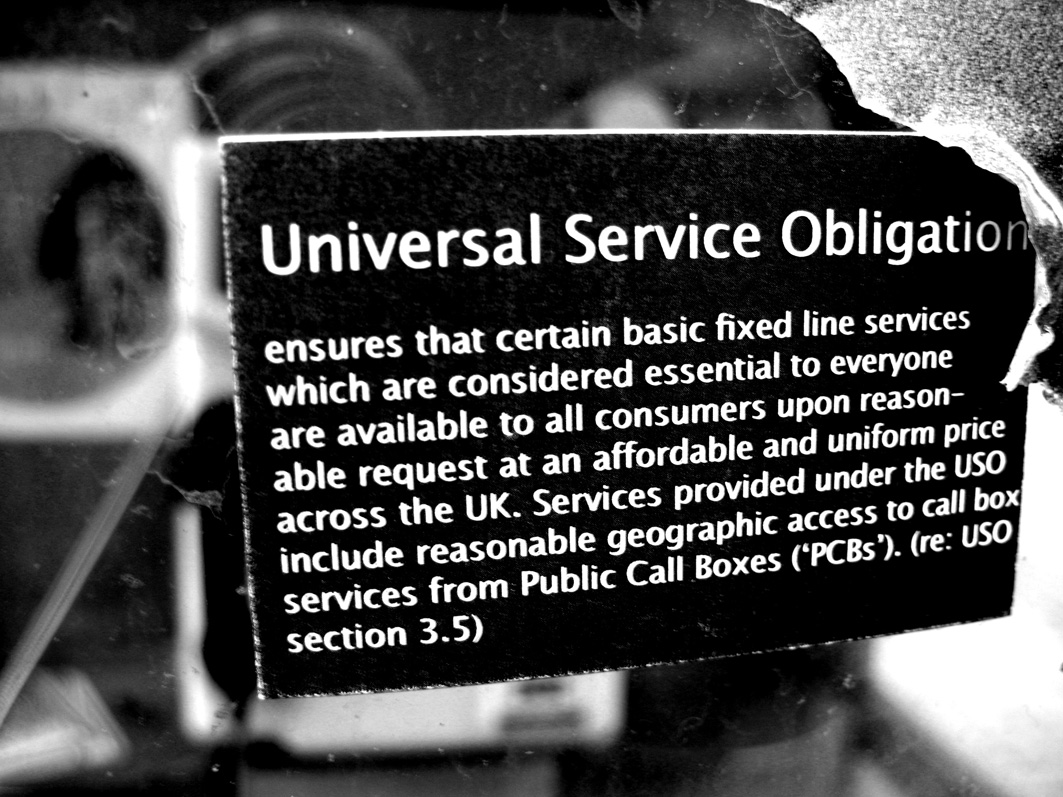
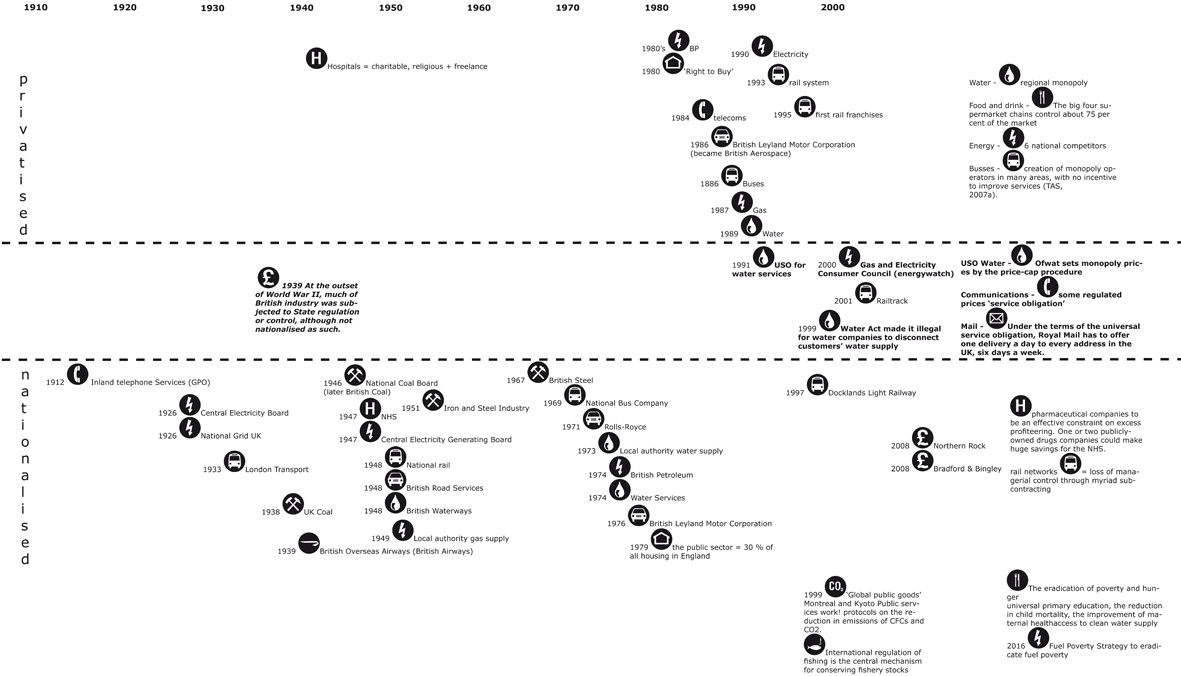
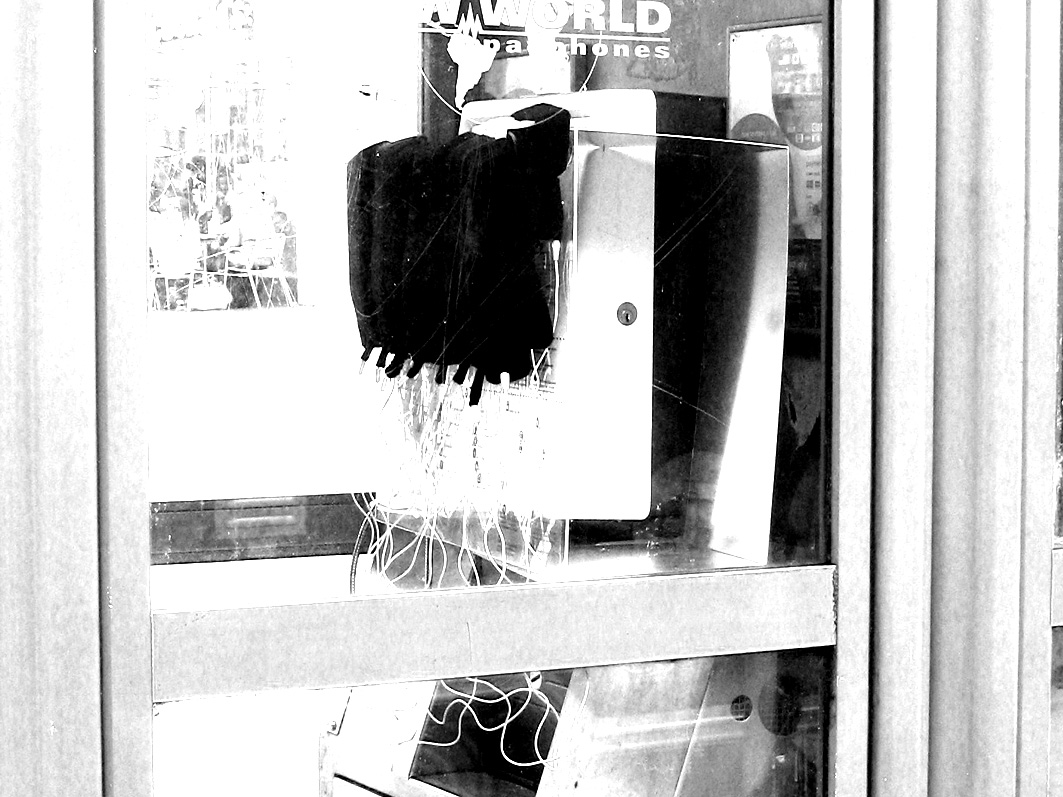
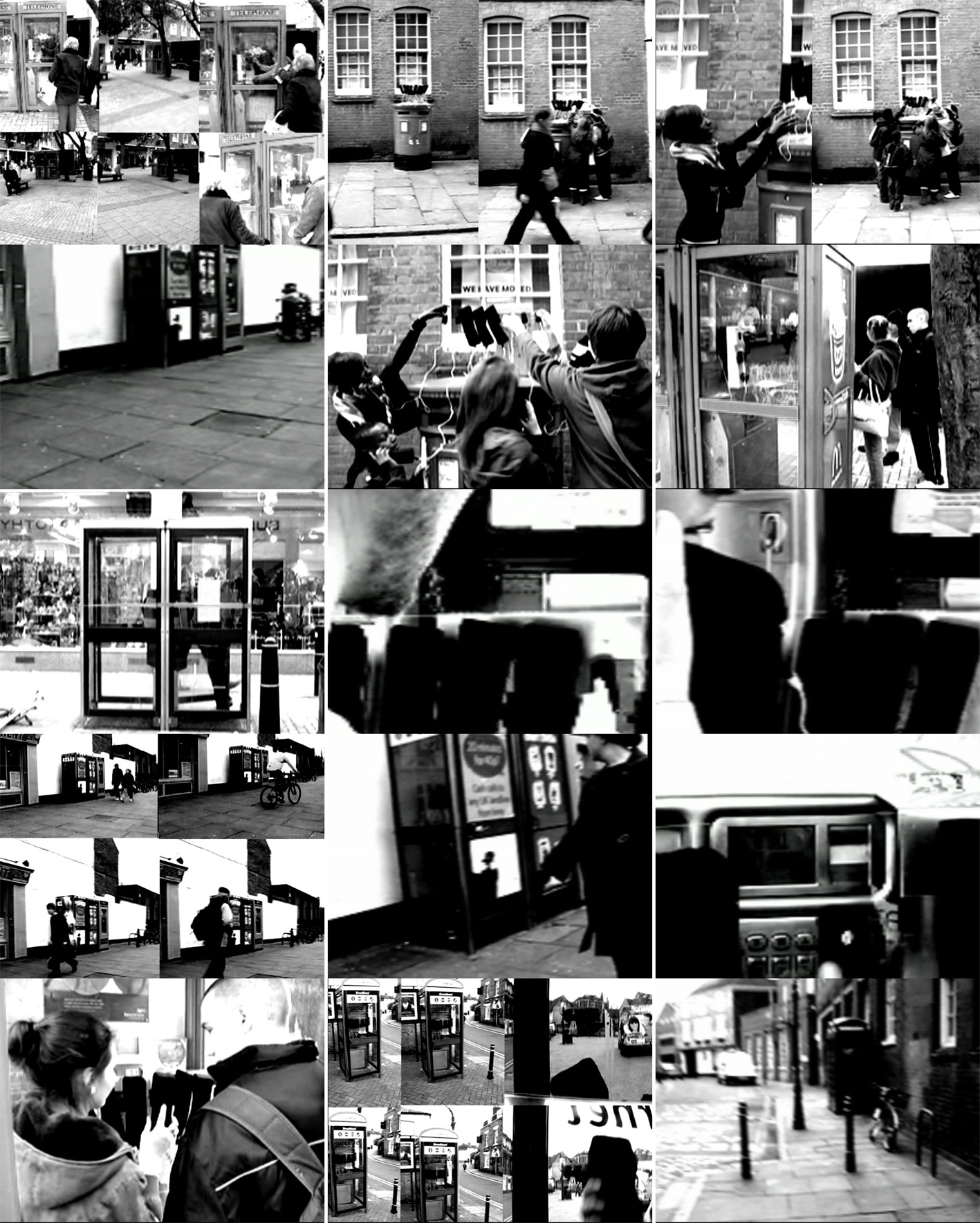
To view film click [comoto~1.mov] below (requires quicktime)

|
COMOTO~1.MOV Size : 5.67 Kb Type : MOV |